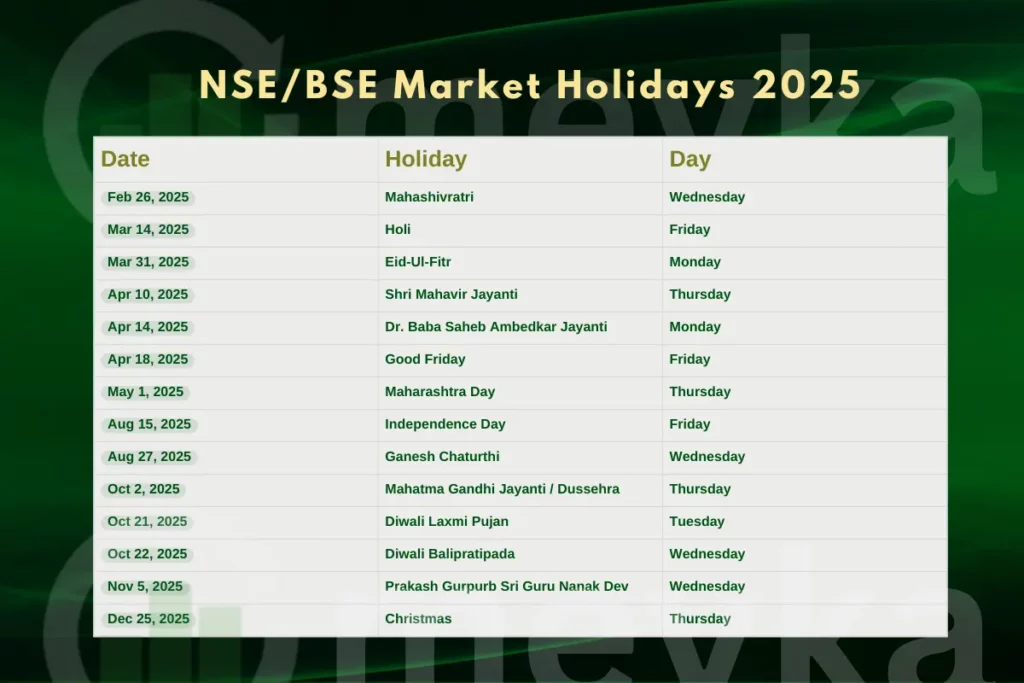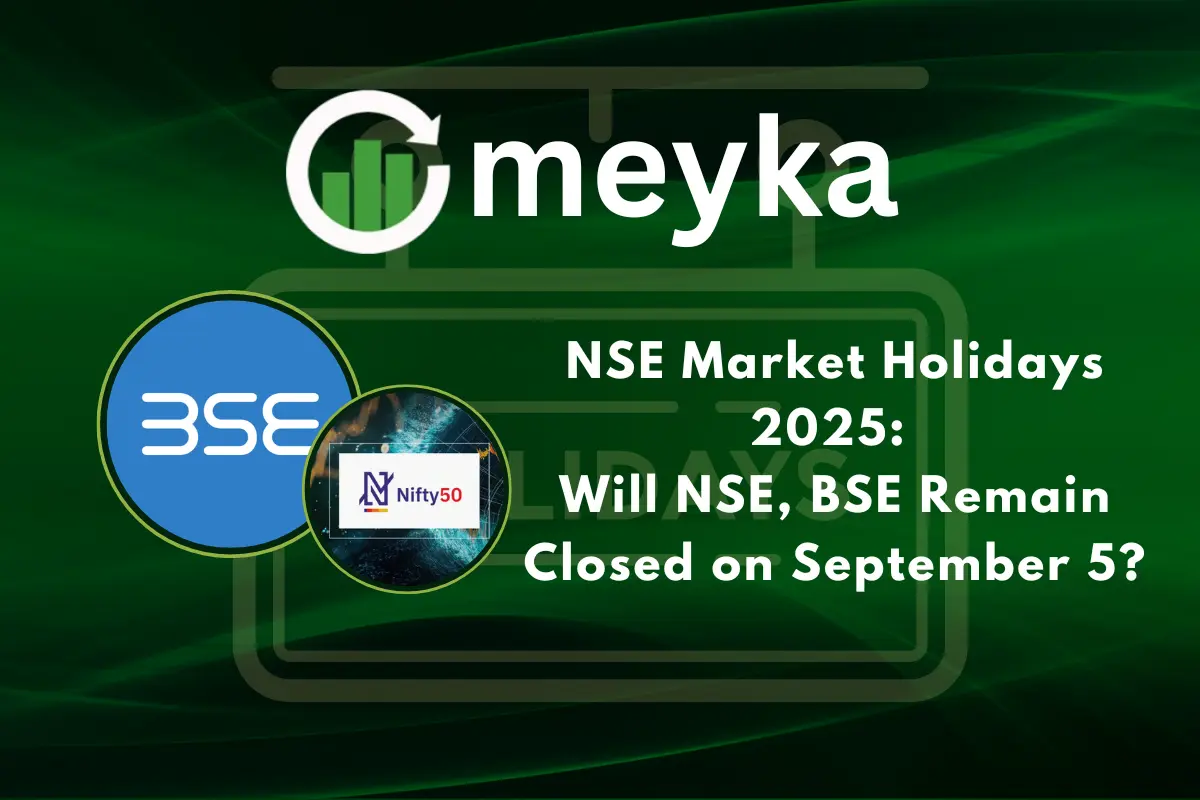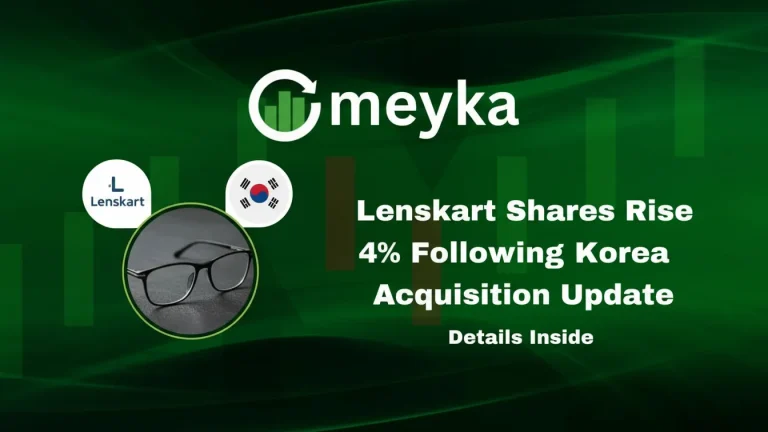NSE Market Holidays 2025: Will NSE, BSE Remain Closed on September 5?
The Indian stock market is one of the busiest in the world. Every day, millions of traders and investors buy and sell shares on the National Stock Exchange (NSE) and Bombay Stock Exchange (BSE). But just like schools and offices, these markets also take breaks on certain days. Knowing about these holidays is very important. It helps us plan our trades, avoid last-minute surprises, and manage our investments better.
One question many traders have is about September 5, 2025. Will the NSE and BSE remain closed on this day, or will trading continue as usual? Market holidays in India are usually linked to national events, festivals, or special observances. Some holidays happen every year, while others may change depending on the calendar.
Let’s explore the official NSE and BSE holiday list for 2025, explain why certain days are marked as holidays, and discuss how these closures can affect our trading plans.
List of NSE and BSE Holidays in 2025
The National Stock Exchange (NSE) and the Bombay Stock Exchange (BSE) observe several holidays throughout the year, aligning with national and regional festivals. In 2025, both exchanges have declared specific dates as non-trading days.

BSE Holidays 2025 (Equity Segment):
The BSE observes similar holidays as the NSE, with the addition of:
- June 27, 2025 – Muharram (Friday)
- October 21, 2025 – Diwali Laxmi Pujan (Tuesday)
- October 22, 2025 – Diwali Balipratipada (Wednesday)
It’s important to note that while both exchanges observe these holidays, the specific segments affected (equity, derivatives, currency, etc.) may vary. For instance, the commodity derivatives segment may have different holiday schedules. Therefore, traders and investors should consult the official holiday calendars of the NSE and BSE for the most accurate and detailed information.
Significance of September 5 in India
September 5, 2025, holds cultural and religious significance in India. It marks Eid-e-Milad, the birth anniversary of Prophet Muhammad, observed by Muslims across the country. Additionally, in the state of Kerala, Thiruvonam, the most important day of the Onam festival, is celebrated. These observances are region-specific and may influence local activities and closures.
Impact of Market Holidays on Investors and Traders
Market holidays can significantly impact trading strategies and investment decisions. During these periods, stock exchanges are closed, meaning no trading occurs, and no settlements are processed. This can affect liquidity and may lead to increased volatility before and after the holidays. Investors should plan their trades accordingly and consider the holiday schedules to avoid unexpected market movements.
Trading on Special Circumstances
In certain circumstances, trading may occur on days typically designated as holidays. For example, the NSE and BSE may announce special trading sessions or adjustments to the holiday calendar to accommodate market needs. Such decisions are communicated through official circulars and should be closely monitored by market participants.
How to Stay Updated on NSE/BSE Holidays?
Investors and traders should frequently visit the official NSE and BSE websites. These sites give the latest updates on market holidays and trading schedules. They also provide information on settlement dates and any changes in the calendar. Signing up for alerts or newsletters from the exchanges helps receive timely updates.
Bottom Line
Knowing the holiday schedules of NSE and BSE is important for smart trading and investing. Being aware of official holidays and special trading sessions helps traders make better decisions. Always check the exchanges’ official calendars to get accurate and up-to-date information.
Frequently Asked Questions (FAQs)
Yes, both NSE and BSE will remain closed on September 5, 2025, in observance of Eid-e-Milad, which is a public and religious holiday in India.
The official list of holidays is available on the NSE website and the BSE website, which provide up-to-date information for all trading segments.
Disclaimer:
This is for informational purposes only and does not constitute financial advice. Always do your research.






